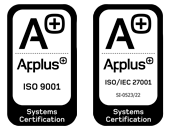The importance of ERP integrations with business tools
Enterprise resource planning systems, also called ERP, are platforms that have been used in companies for years to improve the management and control of processes such as purchasing and sales. These systems have had to evolve just as companies and their needs have.
Furthermore, with the appearance of mobile devices and other digital tools that complement and facilitate the work of employees, another business need has been unlocked: the importance of ERP integrations with business tools.
In recent years, the importance of connectivity and data collection has been reflected in companies, which have seen how with information they can make better decisions and make processes more efficient.
To improve the connection of environments with a business ERP, the development of mobile applications and the integration of APIs has been essential. Therefore, in this post, we will talk about the importance of ERP integrations with business tools to improve communication and process efficiency.

Transformation process in companies is essential to improve their ability to adapt to changes. We tell you the top 6 Digital Transformation Trends!
What is an ERP?
An ERP is software that encompasses a set of platforms and systems that allows tasks to be unified, especially those related to production, inventory, logistics, or accounting.
Its main objective is to connect tasks, as well as unify and improve the flow of data and information between departments. In addition, ERP software has the ability to adapt and be scalable, that is, the ERP grows as the company and its needs also grow.
This type of business planner is very useful when it comes to automating tasks as well as obtaining data. All of this allows you to improve the management of business resources to avoid duplication and errors and improve business efficiency and productivity.
Connect ERP with other business platforms and environments
Currently, companies that have an ERP also need to connect other business tools and environments. From sales applications to corporate mobility apps that help employees stay connected to the company regardless of their geographic location.
Thanks to the connection of an ERP with other business solutions, it is possible to create personalized tools tailored to each company based on its needs.
All of this manages to connect various business environments, improving the transfer of information and avoiding its possible loss as they are more secure systems. In addition, centralizing information in an ERP allows for improved communication and for employees to be informed of the different company processes.
Read on to find out the differences between cloud computing and edge computing and see which service might be best for your company.
How APIs help to connect business tools
To facilitate the connection of environments with a business ERP, APIs have become a fundamental piece.
APIs allow you to define how one part of software communicates with another to create the desired functionality. APIs help developers implement functionality in an app without having to create it from scratch. Therefore, it helps them develop a custom application more agilely and quickly, saving time and money.
For all these reasons, APIs are the most used option to connect various environments such as a mobile application with an ERP. They thus allow improving the connectivity of applications and tools and therefore the exchange of data and information between them.
Implementing APIs is increasingly common since they are flexible and scalable tools, in addition to having the ability to work independently of the technology and device on which they will be deployed.
They are very useful for comprehensively connecting applications with an ERP in addition to allowing real-time communication on all connected platforms.
At ABAMobile, we have been developing custom applications for companies and digital solutions focused on mobile devices for more than 10 years. Get in touch to start your next project!
Get in touch with our team to start your next development project!








